
|
![]()
Greatest Films of the 1990s
1990 | 1991 | 1992 | 1993 | 1994 | 1995 | 1996 | 1997 | 1998 | 1999
Title Screen Film Genre(s), Title, Year, (Country), Length, Director, Description 


American History X (1998), 118 minutes, D: Tony Kaye




Armageddon (1998), 151/153 minutes, D: Michael Bay




Babe: Pig in the City (1998, Australia), 97 minutes, D: George Miller





The Big Lebowski (1998), 117 minutes, D: Joel Coen
This dark and quirky comedy/crime caper-thriller involving a complex case of mistaken identity, was from the inventive, cultish and anarchic Coen Brothers. The obscenity-filled independent film, one of the most revered cult films of all time, was actually about extortion and kidnapping, but was intentionally designed as a shaggy dog tale. It threw together (in episodic vignettes) a mismatching set of absurdist pop cultural elements, including a pissed-on rug, nihilism, strange performance art, a severed toe, White Russians and doobies, porn, a ferret on a leash, missing money, and much more. There were echoes of writer Raymond Chandler's writings behind the film noir The Big Sleep (1946) in its tale of LA sleaze. The opening off-screen narration was from drawling cowboy Stranger (Sam Elliott) as the Sons of the Pioneers sang about "Tumbling Tumbleweeds." Unemployed, bearded, laid-back, long-haired LA slacker Jeff "The Dude" Lebowski (Jeff Bridges), an often-stoned bowling-lover in the year 1990, was assaulted in his bungalow when mistaken for fat, wheelchair-bound, philanthropic Pasadena tycoon-millionaire Jeff Lebowski (David Huddleston), the "Big Lebowski." Afterwards, the Dude was hired by his namesake to deliver ransom money of $1 million to free his young, allegedly kidnapped, nymphomaniac trophy wife Bunny (Tara Reid). Along the way, he met up with Lebowski's idiosyncratic daughter - an erotic feminist artist named Maude (Julianne Moore in a small, comic caricaturized role) - first seen soaring nude over her canvas in a flying trapeze harness. The Dude also experienced a Busby-Berkeley inspired "Gutterballs" fantasy about bowling and porn. Classic bits included the scenes with the Dude's bowling buddies: his angry, hot-headed, gun-crazed best friend - former Vietnam vet and gun-worshipping Walter Sobchak (John Goodman), a moronic and obtuse 'Donny' (Steve Buscemi), and taunting challenges offered to them by purple, polyester, jump-suited champion bowler (and pederast) 'Jesus' Quintana (John Turturro).


A Bug's Life (1998), 95 minutes, D: John Lasseter, Andrew Stanton
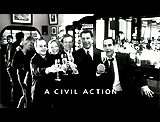

A Civil Action (1998), 115 minutes, D: Steven Zaillian
This fictionalized dramatic courtroom film was based on a true case of corporate environmental (water) pollution in the early 1980s. In the film, successful eligible bachelor and personal-injury lawyer Jan Schlichtmann (John Travolta), part of a respected law firm in Boston and known for being an "ambulance chaser," agreed (pro bono) to take on a class action civil law-suit involving corporate irresponsibility and industrial environmental damage. It would prove to be very expensive ($1.4 million) to investigate the wrong-doing, and Schlichtmann's law firm steadily marched toward bankruptcy. Two large corporations, the chemical giant W.R. Grace and the giant food conglomerate Beatrice Foods - linked to a local tannery (a leather production factory run by John Riley (Dan Hedaya)), were accused of leaking cancer-causing toxic chemicals into the water supply of the town of Woburn, Massachusetts. The pollution caused leukemia among several working class families (with about a dozen dead children), including the family of Anne Anderson (Kathleen Quinlan). Schlichtmann wanted to prove the company's guilt (with an apology), have the companies agree to decontaminate the area, and offer compensatory damages to his clients. Beatrice Foods was defended by crafty, eccentric veteran Southern lawyer Jerome Facher (Robert Duvall), while W.R. Grace (headed by CEO Al Eustis (Sydney Pollack)) was represented by William Cheeseman (Bruce Norris). The case was presided over by pro-business Judge Walter J. Skinner (John Lithgow). The prosecution team - aiding Schlichtmann - included frazzled legal analyst-accountant James Gordon (William H. Macy), Tony Shalhoub (Kevin Conway) and Zeljko Ivanek (Bill Crowley). On the stand, Al Love (James Gandolfini), a worker at the W.R. Grace site, testified, as did John Riley, who perjured himself. It was tough for the defense to battle the two giant corporations. Although intimidated, Schlichtmann's team stubbornly refused any lesser settlement offers ($20 million). The lengthy trial ended with the case dismissed against Beatrice, and a small settlement with W.R. Grace that wasn't sufficient to cover the costs of the trial or compensate the families. The settlement did not include an apology nor the promise to clean up the mess. In the film's epilogue, working by himself, Schlichtmann appealed the case to the EPA (Environmental Protection Agency), which later forced the companies to pay millions for clean-up, including an apology. It took him several years to pay off all of his personal debts. Since the celebrated case, he took on another polluted water case.


Dark City (1998), 101 minutes, D: Alex Proyas


Happiness (1998), 139 minutes, D: Todd Solondz



The Idiots (1998, Fr./It./Denm./Netherlands) (aka Idioterne), D: Lars von Trier
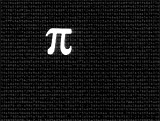


Pi (1998), 85 minutes, D: Darren Aronofsky
Cult director Darren Aronofsky contributed this emotionally-exhausting Kafka-esque work - his debut feature film, shot in grainy, harshly bleached-out B/W. The dramatic thriller and cautionary tale told about the slow disintegration into madness of a paranoid, self-destructive, reclusive NYC mathematician-genius named Maximillian "Max" Cohen (Sean Gullette). Obsessed and preoccupied by numbers and with a homemade super-computer named Euclid, Max theorized like numerologists that there were numerical patterns in everything - including the stock market, the Torah, the Japanese game of "Go," and even the lost true name of God. He was on an endless search for a 216-digit number that might have mystical predictive properties. In his personal life, he was neurotically obsessed with repeating patterns (checking his small apartment's peephole, rinsing his eyes, and injecting drugs with an air compressor), and he suffered from severe migraines. When the pain became unbearable and he ended up totally insane, he drilled into his own temple and constantly-churning brain to seek peaceful bliss - the ending was a symbolic retelling of the metaphorical Icarus myth of flying too close to the sun.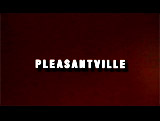


Pleasantville (1998), 124 minutes, D: Gary Ross


Primary Colors (1998), 143 minutes, D: Mike Nichols
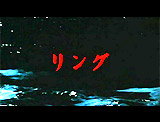


Ringu (1998, Jp.) (aka Ring), 96 minutes, D: Hideo Nakata
Hideo Nakata's surrealistic, chilling, and creepy psychological thriller's plotline didn't seem scary at first - a cursed videotape that killed the unsuspecting viewer within seven days. TV journalist Reiko Asakawa (Nanako Matsushima), with her psychic ex-husband, Ryuji (Hiroyuki Sanada) investigated the urban legend after the mysterious deaths of her niece and three friends, who had watched a cursed videotape and died a week later. When Reiko watched the strange tape herself, the clock began ticking on her own life after the phone rang. The two raced to unravel the mystery of the sinister video, learning about a decades-old tragedy that involved a suicidal psychic named Shizuko and the ghastly murder of her daughter Sadako in a well located in the woods. The monstrous killing spirit of the horrible girl who lived on in the tape was revealed as a vengeful, rage-driven wraith with a half-hidden face covered by black hair, who literally crawled out of the TV. Gore Verbinski's Americanized 2002 remake (starring Naomi Watts) was also a decent shocker.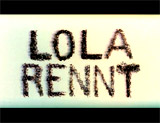

Run Lola Run (1998, Germany) (aka Lola Rennt), 81 minutes, D: Tom Tykwer
Writer/director Tom Tykwer's relentlessly-thrilling, adrenalized hit film was about fate and destiny. It accentuated by a techno/industrial soundtrack, multiple images of ticking time-pieces, and a mix of stunning visual styles. Released about 10 years after German reunification, the film became a symbol of the new dynamism and life-altered character of the reunited city in the late 1990s as it was being rebuilt. There were three breathtaking and frenetic beat-the-clock attempts of tattooed, short red-haired Lola (Franke Potente) to frantically race (from the former East Berlin to West Berlin in 20 minutes) and acquire 100,000 DeutschMarks needed to save the life of her dependent, drug-dealing boyfriend Manni (Moritz Bleibtreau). He was panicking at a phone booth in Berlin, where he was to meet his boss Ronnie (Heino Ferch) at noon with the cash. However, he had inadvertently left the bag of cash on a subway car, where it was picked up by a homeless bum. Lola's task was to sprint and acquire the replacement cash and get it to Manni in 20 minutes before he committed a robbery to get the money needed to pay off the debt. The film's twist was that she was off by a matter of seconds in each 'what-if' scenario, and that drastically altered the consequences. The story ended happily, but only after two earlier attempts with very different outcomes.

Rushmore (1998), 89 minutes, D: Wes Anderson
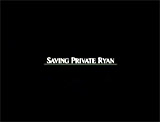

Saving Private Ryan (1998), 169 minutes, D: Steven Spielberg
Steven Spielberg's R-rated war epic opened, in its first half-hour, with the brutal, uncompromising, and graphic depiction of the landing at bloody Omaha Beach on D-Day (June 6, 1944). The film's aftermath revolved around the rescue of a downed paratrooper in the French countryside, Pvt. James Ryan (Matt Damon), whose three brothers had recently been killed in action, by a group commanded by veteran Captain John Miller (Tom Hanks in an Oscar-nominated role). Miller's platoon squad of seven stereotypical characters, brought together as a morale-lifting, propagandistic, PR effort for the military brass (Army Chief of Staff Gen. George C. Marshall (Harve Presnell)) and the homeland, included: hard-nosed Sgt. Horvath (Tom Sizemore), a frightened, militarily-inexperienced translator Cpl. Upham (Jeremy Davies), and five privates (Edward Burns, Giovanni Ribisi, Vin Diesel, Barry Pepper and Adam Goldberg) -- including a cynical hothead from Brooklyn, an introspective medic, a decent soldier, a religious Southern sharpshooter, and a tough Jew. The film was a critical and box office smash, and brought Spielberg his second Best Director Oscar (his first was for his other World War II era film, Schindler's List (1993)).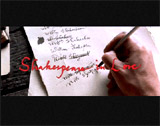



Shakespeare in Love (1998, US/UK), 122 minutes, D: John Madden




A Simple Plan (1998), 121 minutes, D: Sam Raimi



There's Something About Mary (1998), 118 minutes, D: Bobby and Peter Farrelly



The Thin Red Line (1998, Canada/US), 170 minutes, D: Terrence Malick
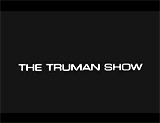


The Truman Show (1998), 102 minutes, D: Peter Weir